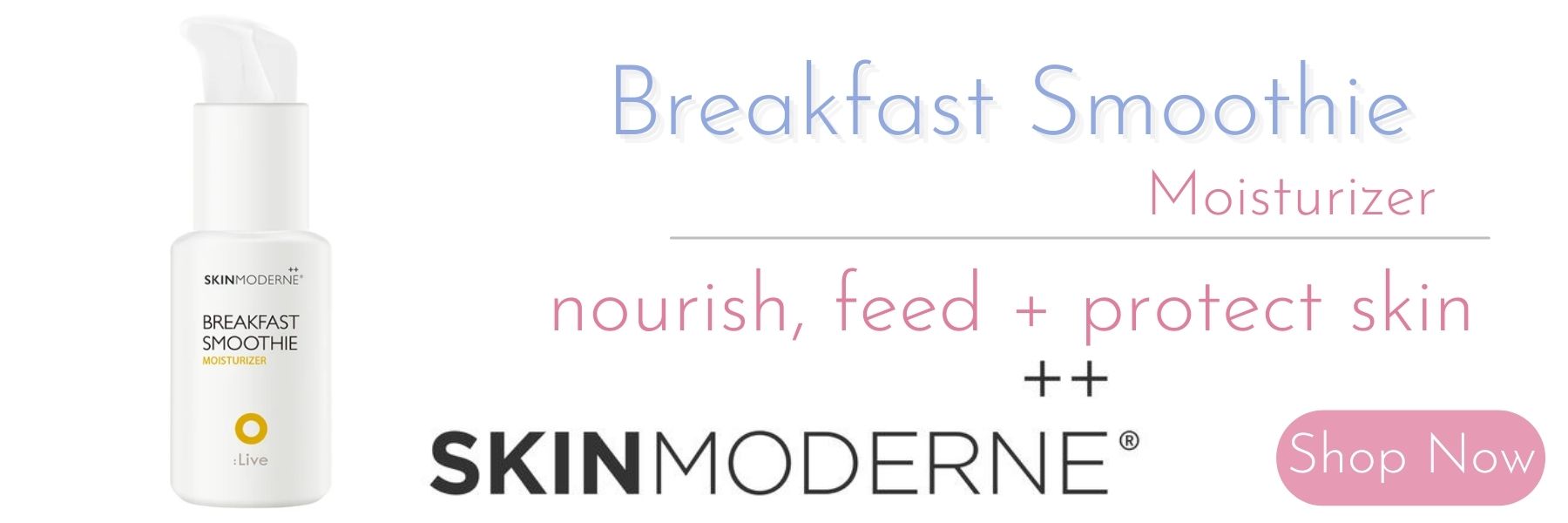by Erin Madigan-Fleck NMD
A better breakfast, It is a general consensus among nutritionists that breakfast should represent a collection of core nutrients that supply the body “fuel” to seize the day. For many, breakfast is an afterthought or simply a snack on-the-run laden with calories, fats and sugar. Many multi-tasking individuals gravitate towards eating the same foods over and over – citing convenience as the reason for their choices.
Nutrient deficits will eventually lead to imbalances or nutrient deficiencies and inadvertently may impact the skin. Most functional nutritional programs focus on the balanced benefits from foods and emphasize nutrient density. The ANDI score system ranks the nutrient value of foods on the basis of how many nutrients are delivered to your body for each calorie consumed. ANDI scores scan thirty-four important nutritional parameters and foods are ranked on a scale of 1-1000, with the most nutrient-dense cruciferous, leafy green, vegetables scoring the highest.

Erin Madigan-Fleck NMD, CDT,LEI, LMC
Dr. Erin Madigan-Fleck is a naturopathic medical physician, licensed master cosmetologist, esthetician, esthetic instructor, dermatology technician and brings over 35 years of experience to the esthetic and natural health industry. She was the lead aesthetician for The Center for Plastic Surgery in Atlanta, GA providing pre & postoperative care and remedial image rehabilitation for burn patients and patients with other health anomalies and disfigurements. Her work in this area continues as a distinguished member of the British Association of Skin Camouflage in the United Kingdom.
With regard to the skin; supplying the body with power-packed nutrients will assist in homeostasis and most certainly offer more vitality than relying on a diet of supplements and so-so meals.
Your body and your skin deserve the best, and putting more emphasis on breakfast is a great start to getting more glow. Nutritional and dermatological research has demonstrated that specific and key nutrients are required to ensure the physiological functioning and overall health of the skin.
3 Important Building Blocks
to Build a Better Breakfast For Healthy Skin
Proteins at Breakfast For Healthy Skin
Protein is great at breakfast for healthy skin. One-third of the protein content in the body is made up of collagen, which is the major fibrous protein found in the extracellular matrix and connective tissue of the skin. Collagen is formed by the triple helix of amino acids – glycine, proline, and hydroxyproline – and, along with keratin and elastin, give the skin its strength. Amino acids are essential for both dermal and epidermal structures and produce the extracellular proteins and enzymes needed for the synthesis of the epidermal barrier.
Protein Sources for Breakfast
Eggs, kefir, nuts, oats, tofu, chia, tuna, steak, bacon, beans, quinoa, yogurt, salmon, bacon, tempeh, nut butters, chickpeas, cottage cheese, protein powder, protein pancakes, turkey bacon, sausage, chicken sausage.
Essential Fatty Acids At Breakfast For Healthy Skin
Essential fatty acids are the building blocks of healthy cell membranes and are integral for normal stratum corneum and function, and barrier stability and skin health. Additionally, they influence intercellular cohesion, superficial lipid film, cell membrane fluidity, are precursors for eicosanoid anti-inflammatory mediators, and assist in skin hydration. They are found integrated and bound in triglycerides, phospholipids, glucosylceramides and ceramides which all play a vital role in formation of the epidermal permeability barrier. Essential fatty acids in keratinocytes also function as building blocks, energy generators and can be potent signaling molecules.
Essential Fatty Acid Sources for Breakfast
Flaxseeds, flax milk, hemp seed, hemp milk, chia seeds, pumpkin seeds, sunflower seeds, walnuts, almond milk, cashew milk, salmon, omega 3 eggs, tuna.
Primary Antioxidants at Breakfast For Healthy Skin
Antioxidants are great at breakfast for healthy skin, here’s a list of several key antioxidants.
VITAMIN C
Nutritional intake of vitamin C is imperative since vitamin C is not naturally synthesized by the human body. Vitamin C serves as a co-factor for proline & lysine hydroxylases in the formation of collagen, acts as a free radical scavenger, concentrates reserves in the epidermis, and supports vitamin E and glutathione. Normal skin contains high concentrations of vitamin C with most of the vitamin C positioned in intracellular compartments – it is found in both the dermis and epidermis.
Sources for Breakfast: Bell peppers, guava, strawberries, cantaloupe, lemon, lime, orange, papaya, grapefruit, pineapple, currants, broccoli, kale, tomato, kiwi, parsley, blackberries, spinach, watermelon, honeydew, pink grapefruit.
VITAMIN A
Vitamin A is a vital source of protection for the skin, as it bolsters the body’s ability to assist in sun protection by supporting some SPF factor depending on intake of dietary vitamin A. Provitamin A is obtained from fruits and vegetables that contain carotenoids. Carotenoids are converted to retinol by the body after the food is ingested and are effective antioxidants. Beta carotene, which is found primarily in plants, is endorsed for its pro-vitamin activity and can act as a lipid radical scavenger and singlet oxygen quencher.
Sources for Breakfast: Carrots, squash, spinach, cantelope, red bell pepper, pink grapefruit, broccoli, sweet potato, peaches, tangerines, watermelon, nectarines, avocado, apricots, papaya, kale, salmon.
B VITAMINS
B1 (Thiamin)- B2 (Riboflavin)- B3 (Niacin) -B6 (Pyridoxine)- B7 ( Biotin) – B9 (Folate)
Skin benefits from the B vitamins include support for acne, enzyme potential, skin barrier regeneration, anti-inflammatory properties, inhibition of melanin, inhibition of sebum, supports cell formation, assists in re-epithelization, anti-pruritic, helps control skin flaking, supports circulation, combats oxidative stress, helps skin tone and texture, and helps to strengthen the skin barrier.
Sources for Breakfast: Tuna, steak, chicken, turkey, eggs, beans, lentils, seeds, nuts, dark green leafy greens, citrus fruits, bananas, dairy, tofu. tempeh, cheese, yogurt, whole grains, brown rice, millet, nuts, mushrooms, sweet potatoes,
VITAMIN E
Vitamin E is the most abundant lipophilic antioxidant found in human skin – the levels are higher in the epidermis than the dermis. Vitamin E accumulates in the sebaceous glands before reaching the epidermis through sebum. Vitamin E is important for skin and cell protection, helps to prevent lipid peroxidation, is supportive for vitamin C and E, assists in hydration, helps to strengthen the skin barrier, and supports skin and woind healing.
Sources for Breakfast: Sunflower seeds, sunflower oil, almonds, spinach, kiwi, avocados, broccoli, olive oil, tomatoes, carrots, asparagus, mangoes.
VITAMIN D
Vitamin D affects the proliferation and differentiation of the skin either directly or through its interaction with calcium. Keratinocytes within the epidermis are capable of metabolizing the vitamin D, and numerous functions of the skin are regulated by vitamin D and/or its receptors. These include inhibition of proliferation, stimulation of differentiation including formation of the permeability barrier, promotion of innate immunity, regulation of the hair follicle cycle, Keratinocyte differentiation, free radical protection and suppression of tumor formation. Vitamin D enters the circulation and is transported to the liver, where it is hydroxylated to form D 3 Calcidiol; the major circulating form of vitamin D.
Sources for Breakfast: Salmon, Fatty fish, eggs, dairy products, chicken, pork, yogurt, milk, cheese.
VITAMIN K
Vitamin K plays a role in blood clotting, helps to support circulation, is an important regulator of the body’s protein coagulation, supports wound healing, aids in the reduction of erythema, accelerates energy production in the mitochondria, assists in the stabilization of capillaries, may assist in binding pigment compounds to cells, and aids in the reduction of inflammatory cytokines.
Sources for Breakfast: Kale, broccoli, asparagus, kiwi, blueberry, blackberries, green apple, avocado, squash, lettuces, chives, scallions.

